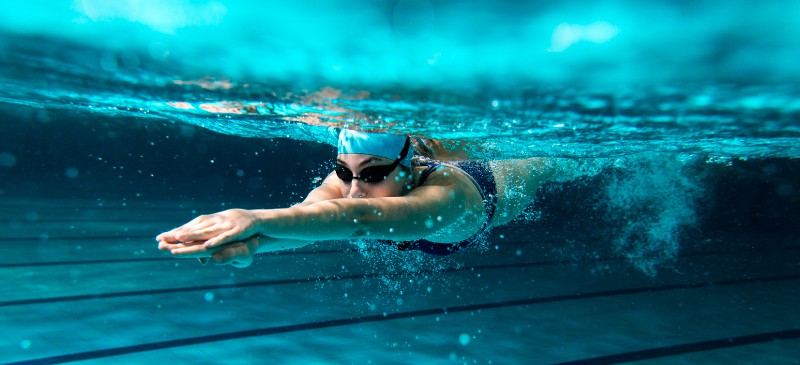This Dr. Axe content is medically reviewed or fact checked to ensure factually accurate information.
With strict editorial sourcing guidelines, we only link to academic research institutions, reputable media sites and, when research is available, medically peer-reviewed studies. Note that the numbers in parentheses (1, 2, etc.) are clickable links to these studies.
The information in our articles is NOT intended to replace a one-on-one relationship with a qualified health care professional and is not intended as medical advice.
This article is based on scientific evidence, written by experts and fact checked by our trained editorial staff. Note that the numbers in parentheses (1, 2, etc.) are clickable links to medically peer-reviewed studies.
Our team includes licensed nutritionists and dietitians, certified health education specialists, as well as certified strength and conditioning specialists, personal trainers and corrective exercise specialists. Our team aims to be not only thorough with its research, but also objective and unbiased.
The information in our articles is NOT intended to replace a one-on-one relationship with a qualified health care professional and is not intended as medical advice.
The Surprising Benefits of Swimming in Cold Water (+ How to Stay Safe)
July 29, 2021

People living in cooler locations such as Russia, Finland and England have been practicing cold water swimming for hundreds of years. Since the 1800s swimming in cold water has even grown in popularity as a competitive sport and hobby, done without wet suits in the form of quick “polar plunges” and ice water races.
There’s even a mile-long swim challenge in freezing water, called Ice Zero, that’s held in places such as Antarctica, Russia and Northern Europe, which to date only 11 brave people have ever completed.
You may already know that swimming is linked with benefits including improved endurance and breath control, but what about water temperature? Is it better to swim in cold or warm water?
While a heated pool might feel cozier to lounge in, swimming in cold water is associated with some unique health perks — such as a boost in your metabolism and immune function. It’s also described as a “thrill” that can quickly lift your mood and energy if you’re willing to deal with the feeling of shock that can come along entering into ice cold water.
Benefits
What happens when you swim in freezing water? Are the benefits akin to taking a cold shower?
As a form of aerobic exercise, swim workouts in general offer benefits for your heart, lungs, immune system and more. Swimming is considered one of the most ideal forms of exercise for people with injuries and who are older, since it’s not a weight-bearing activity.
When you add cold water to the swimming equation you also experience a boost in cellular health and even your metabolism. Cold water winter swimming is overall thought to be more difficult than regular temperature swimming and has the added potential to increase body tolerance to stressors.
Here’s more about what cold exposure does to your body and some of the potential benefits of swimming in cold water:
1. Gives Your Metabolism a Boost
Exposure to cold water reduces your deep body temperature. This acts as a stimulus for your metabolism and serves as an adaptive process.
When your temperature drops, your body reacts by shivering to generate more heat, via involuntary contraction of muscles. Your heart also pumps blood faster to boost your circulation, and in general your body works harder on a cellular level to maintain homeostasis and prevent hypothermia.
All of this uses energy in the process. As such, it can actually increase your metabolic rate (although it’s likely not enough to cause weight or fat loss on its own).
2. Releases Endorphins
Even though it can be nerve-racking to enter into freezing water, most find that it’s an instant mood-booster once they work up the courage to do it.
Not only is swimming in cold water a form of aerobic exercise that can help fight stress, anxiety and depression, but it also releases endorphins (“feel good hormones”) because it’s a form of pain.
As the International Ice Swimming Association explains, “Cold water swimming brings us close to the pain barrier.”
Our bodies produce endorphins when we face pain as a way of helping us cope and respond.
Many cold water swimmers find that after exiting the water they feel calmer and more positive. Some also feel that it helps manage chronic pain, such as nerve damage, neck pain and shoulder pain that may be tied to inflammation.
Additionally, cold exposure is linked to reduce fatigue and enhanced recovery from exercise (a type of positive “stressor”).
Another potential perk of swimming in freezing water is the social aspect if you choose to do it with a team or group of friends. For example, it’s becoming more popular in communities where the temperature is cold to host “polar plunges” in the winter time, such as for charities and other causes.
3. Promotes a Strong Immune System
Cold water causes an increase in the amount of white blood cells produced by the immune system. It does this to help defend against potential threats, and in the process it can enhance protection against getting sick.
Freezing water swimming also seems to have anti-inflammatory effects. That can help explain its supposed pain-killing effects.
4. Supports Cardiovascular Health
Swimming offers many benefits for the whole cardiovascular system, including the heart itself, the veins, arteries and capillaries.
When swimming in cold water, blood moves to the surface of your skin and to your extremities to help keep you warm. In the process you experience improved circulation and support for healthy blood pressure.
5. May Aid Hormone Production
Some research suggests that another benefit of swimming in cold water is support for hormone balance and production, including a boost in estrogen and testosterone production, which contributes to fertility and a healthy libido. Higher production of these reproductive hormones is also linked with other positive effects, such as an easier time building muscle, more confidence and self-esteem, enhanced mood, and more energy.
Risks and Side Effects
What water temperature is too cold to swim in?
You want to avoid swimming in freezing water that is below 50 degrees Fahrenheit (or 10 degrees Celsius). Lower temperatures can cause complications including numbness, pain and feelings of shock.
Can you get hypothermia from swimming in cold water?
Your extremities, such as the hands and feet, are most susceptible to developing hypothermia when you’re swimming in freezing water, so monitor how they look and feel.
People who are inexperienced at swimming in cold temps, as well as older adults, are most likely to experience hypothermia and other side effects. That’s because repeated exposure to very cold water helps us adapt to the cold over time, so people who practice cold water swimming can become more resistant to hypothermia.
The body goes through a metabolic adaptive response (hypothermic-insulatative adaptation) that helps increase internal heat production more easily once someone is accustomed to the cold.
For most people signs of hypothermia usually set in after 15 to 30 minutes in freezing water. Look out for these signs and other side effects due to cold exposure, including:
- pain
- numbness
- purple/redness of the skin
- mental confusion
- slurred speech
- poor movement coordination
Swimmers in this state should remove themselves from cold water immediately, take off wet clothes and be wrapped in dry, warm clothes and blankets to prevent complications.
Is swimming in cold water bad for your heart?
Cold water causes a shock response. This usually includes an initial gasp, rapid breathing and increased heart rate and blood pressure.
Swimmers can habituate to this response with practice, but at first it can be risky for someone with a history of heart problems.
Those who are risk for heart-related side effects should start swimming in the cold slowly to give themselves a chance to adapt, such as doing five or six three-minute immersions where the whole body (not the head) are immersed in cold water.
How to Stay Safe
How long can you swim in freezing water?
It really depends on how adapted to the cold you are, along with how cold the water is.
The Outdoor Swimmer website tells us that it’s a good idea to monitor how much time you spend in the water and also to train in progressively chillier waters. If the water is very cold, consider staying in it for only several minutes or even just one to two minutes.
When you first begin to practice freezing water swimming, try doing so in short increments repeatedly.
According to one avid cold water swimmer, “The general rule is that you can spend 1 minute per degree of water temperature [Celsius] in the water — obviously, you need to listen to your body too.” This mean that it’s generally safe to spend about 10 minutes in water that is 50°F (or 10°C).
To obtain the most benefits from swimming in cold water without risking complications, here are some tips:
- Give your body time to acclimate. Ideally start swimming when the water temps aren’t too cold yet, and then continue doing so as the temperature keeps dropping over the course of weeks and months.
- Enter the water slowly. Do not dive or jump in unless you are used to the cold water, since this can cause a shock reaction that can make it hard to breathe.
- Keep moving and swimming to help generate heat.
- Wear the right gear, which can help preserve body heat. Try a swimming hat, neoprene gloves, booties, balaclava or a wetsuit.
- Warm up afterward. Remove wet clothes as soon as possible. Dress in dry, warm clothes, including a hat, gloves and thick socks.
- Drink something warm, such as warm water or tea.
- Don’t take a hot shower right away. It can be too shocking. Wait about an hour to shower so your core temperature can normalize first.
- Don’t worry about shivering — this is a natural adaptive strategy that helps you rewarm and return to balance.
Conclusion
- Is it safe to swim in freezing water? As long as you acclimate slowly and monitor how much time you spend in the water, swimming in freezing water benefits can include support for your immune system, metabolism, mood, heart and more.
- Ice cold water decreases your body temperature. This makes your body work harder to maintain homeostasis, using energy in the process.
- It kicks off an adaptive process that can increase your metabolic rate, releases endorphins and help boost production of white blood cells.
- To prevent hypothermia and other side effects, aim to swim in water between that’s around 50°F (or 10°C). Spend about one minute in the water for every degree Celsius that the water temp is.



